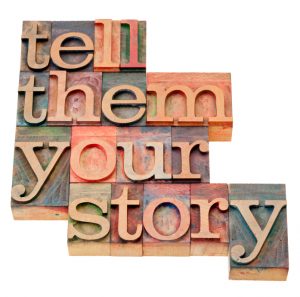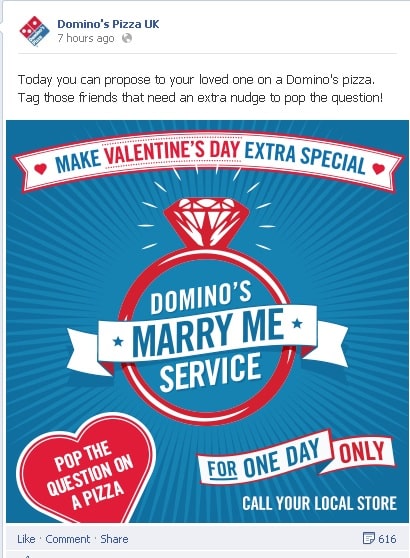I don’t usually go to conferences. I’m the introverted writer who prefers to squirrel herself away with a laptop in a room full of books, rather than, you know, sit in a room with hundreds of strangers. So 2013 has been my introduction to the world of conferences and events.
This year, I’ve been to small scale events (like Social Media Week sessions and a Guardian Masterclass), an all-day conference with around 100 people (Social Media Results) and a two-day event attended by hundreds of people (iStrategy London). I finally understand the existential pain caused by a deadly dull PowerPoint presentation, and the inspiration that you can get from a brilliant speaker.
From a listener’s perspective, I can think of five elements that can make or break a speaker. (If you have your own speaker must-haves or pet peeves let us know in the comments.)
Tell me something I don’t know
All of the events I’ve been to this year have focused on social media. I love learning, and so I go to these events to discover facts and hear perspectives that I’ve not previously encountered. That’s why it’s so disappointing to sit through a presentation and hear the speaker talk about a two-year-old case study, which has been blogged to death, like it’s something new.
I’ve been at a few talks where the audience was made up of many people who were just coming to social media, so I do understand that a presentation has to try and speak to the entire audience, but that doesn’t mean the entire speech has to be aimed at the newbie. Give everyone something to be interested in or you risk losing half your audience to boredom.
Tell me a story (and make it a good one!)
I know that were all supposed to live tweet 140 character pearls of wisdom as they fall out of the speaker’s mouth, but you know when you’re dealing with an amazing speaker when you realise you’ve been so spellbound by their performance that you’ve failed to tweet (the sin!).
That happened to me when I listened to BJ Cunningham’s talk at iStrategy London. He could have just got up on the stage with a PowerPoint deck and said “here are my tips on branding”. Instead, he shared his story. He was funny, engaging, and just talked. He had no notes and he didn’t stand behind a podium. He must have used ten PowerPoint slides to illustrate what he was saying, but even these were funny, and supplemented his performance.
He got a standing ovation.
The facts matter, but what matters most is what people believe. Amazing talk by BJ Cunningham #istrategy pic.twitter.com/gbnS4cOWNT
— katehartley (@katehartley) October 1, 2013
Be different
The best way speakers can be different is to be themselves. Think about it from the listener’s perspective. They have to sit and pay attention to speaker after speaker, many of whom just go up and read out their notes as they click through their PowerPoint presentation. Speaking in the same monotone throughout and not making much eye contact. These speakers aren’t talking to people, they’re performing an obligation.
One of the best speakers at this week’s Social Media Results conference was ASDA’s head of social media, Dominic Burch. He had an interesting story to tell, but the event was over-running so he had to squeeze a 30-minute presentation into 15 minutes. It was brilliant. We could relate to the situation he was in (last slot before lunch, tetchy audience). He still went through a PowerPoint presentation, but he talked to the audience, rather than at us.
@domburch Definitely most useful talk of the day #SocMedResults – thank you for the detail, the energy and the wit!
— Hannah Ballantyne (@hallantyne) November 20, 2013
Don’t shatter the illusion
None of us is perfect but when a senior person, from a global brand, speaks at an event, there’s a certain standard that the audience expects them to meet. Okay, they may not be the most engaging speaker in the world, but there are basic things that they need to get right before stepping on stage.
Things likes having someone else proof your PowerPoint slides to make sure there are no spelling or grammar mistakes. There’s no point having a graphical element to your presentation if you’re not going to take the time to design the slides with care.
You need to be able to display authority as a speaker. You need to be able to hold the attention of those in the room. You can’t do this when they’re busy tweeting about how terrible your presentation is.
Don’t patronise your audience
We've got live voting at #SocMedResults event. Can be a great way to engage the audience – if you ask the right questions…
— CarrotCommunications (@Carrotcomms) November 19, 2013
We got the chance to live vote during the Social Media Results conference. This added an interesting element to the speaker’s presentations. Some of them didn’t use the tool at all, others asked interesting questions that allowed them to make a point, or judge the level of knowledge in the room.
The worst way to use this technology is to treat the audience with condescension, especially if you’ve just given a horrible presentation. There is no quicker way to alienate people than giving them a quiz to see if they were listening to what you said (the answer is no, we were too busy being judgey).
We can’t all be great orators, in the same way that we can’t all be championship football players, or award winning account managers, but if speaking at events is part of the job then we owe it to ourselves give the best performance we can. If you hate speaking and get terrible nerves, get some training. If you still hate doing it, then delegate it to someone with that skill and do something else.
You owe it to the people in the room – who’s companies have paid hundreds, or thousands, of pounds to hear what you have to say – to send them away talking about you and your brand for all the right reasons. Don’t be that speaker.
–






